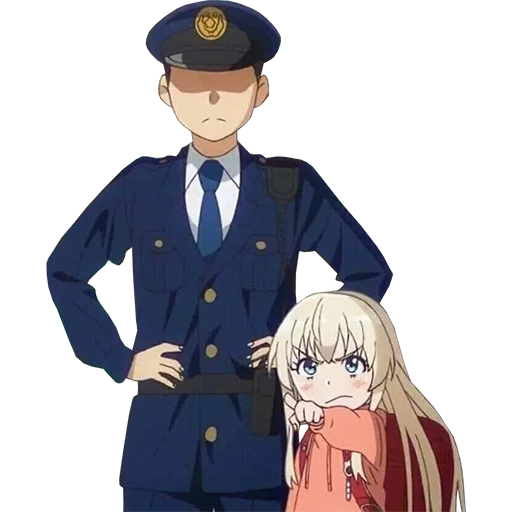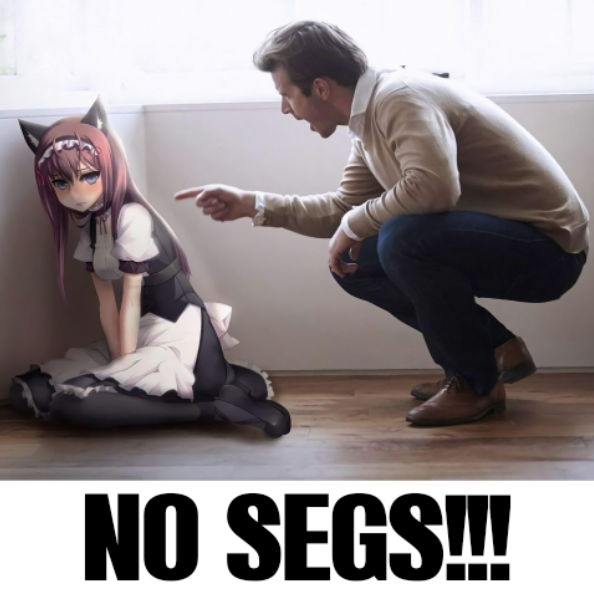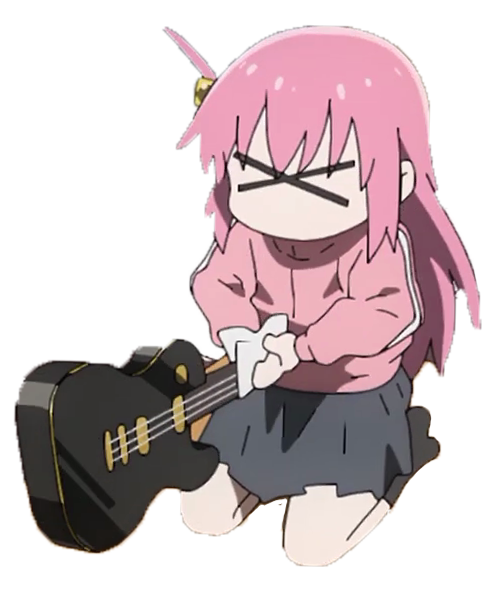Virgin Knight Who Is the Frontier Lord in the Gender Switched World - Chapter 58
- Home
- All
- Virgin Knight Who Is the Frontier Lord in the Gender Switched World
- Chapter 58 - Between Madness and Calm
No need for flowery language.
In short, Faust von Polydoro had completely picked a fight with the royal family and the nobles.
It was clear enough that even the foolish lower-ranked clergy noble, who had earlier scorned Faust, could understand.
“Faust von Polydoro.”
“Yes?”
Eyes that bridge the gap between madness and calm, revealing unfathomable thoughts.
Seated upon the throne, I, the Queen, found myself utterly incapable of discerning Faust’s thoughts.
Faust, known as The Knight of Wrath, had never been one to disregard courtesy until now.
Yet now, this man was undeniably initiating a confrontation with both the royal family and the nobility.
Think, Liesenlotte. What is Faust aiming for?
Is he deliberately provoking my wrath?
Or is it simply that Faust himself is quietly seething with anger?
“Your joke goes too far. Even if you are a hero of the Virendorf campaign, some things are forgivable and things that are not.”
“Yes, there are also things that I cannot forgive. This Polydoro, if necessary, will always lead the charge into battle, fighting against any enemy. In fact, I have always done so. But I refuse to die due to the incompetence of my superiors.”
Incompetence.
All the nobles simultaneously grimace in direct insult to me, visible from the throne.
I don’t understand.
I don’t understand what Faust von Polydoro is aiming for.
But…
“Duchess Astarte, and Anastasia. Lord Polydoro seems to be in poor spirits. Let’s postpone discussing rewards for Lord Polydoro’s merits to another day.”
I signal to the two of them to stop Faust immediately.
There’s just enough time.
Personally, the thought of killing Faust is unthinkable, and his intense anger over Anhalt’s disregard for his past achievements is not without reason..
Let’s forgive him.
And as a public figure, in this full assembly, disrespect towards me, the Queen, cannot be forgiven.
However, the key to peace negotiations with Virendorf lies entirely with Faust von Polydoro.
Should we punish Faust, Virendorf, no, Queen Katarina, will accuse Anhalt of treaty violation and attack us with full force.
As a public figure, I couldn’t possibly punish Faust.
“Listening till the end, that was our promise to each other.”
Faust mutters as if feeling empty.
With that single phrase, Astarte and Anastasia, who were about to approach Faust, stopped in their tracks.
It’s a fact.
I promised to listen to each other’s words till the end with Faust.
But your words can no longer be considered a plea.
However…
“Queen Liesenlotte, please listen to Faust von Polydoro’s words till the end.”
“Lord Polydoro, if you make even one more insulting remark, you will be immediately thrown out of the royal castle. Just stop that.”
Astarte and Anastasia.
It seems they intend to uphold the promise.
The original plan was to let Faust speak everything and then pacify him.
It seems they still intend to proceed with that plan.
“Very well.”
It will surely be a long debate.
Why Faust is making such calm yet madly outrageous remarks, I will discern their true intention here.
Do not underestimate Liesenlotte, the Queen of the Anhalt Kingdom, the Elector.
“Continue, Lord Polydoro. And let me ask as well. Why did you think the nomadic horsemen would reach Anhalt within seven years?”
“Because the nomads do not govern.”
“What?”
It was a simple and clear outrageous statement.
“The nomads plunder, slaughter, rape, and destroy. They kill every single royal family member. And then? They employ all the civil officials of the destroyed country. Either with the same treatment or even better. Among them will be the Parsa people and heathen officials. Foreign merchants will shine as financial bureaucrats. No, in the first place, the state of nomadic nations is built with substantial support from foreign merchants.”
“I cannot comprehend what you are saying.”
“On the contrary, I ask you, Queen Liesenlotte. Do you think the nomads can govern? Do you think they can stabilize the foundation? Do you believe they can manage a country brilliantly as a ruling class? How many among the nomads have the aptitude or the groundwork for that? The nomads will not change their way of living.”
To think.
But no conclusion comes.
Lacking knowledge about the nomads.
Their culture was something Queen Liesenlotte couldn’t possibly know.
That Faust speaks of it as if it were obvious was rather abnormal.
“What do you think culture is, Queen Liesenlotte?”
A rapid succession of questions. I struggle to find an answer. Meanwhile, Faust continues to speak.
“I consider us, the tillers of the fields, let’s call ourselves agrarian peoples, for whom ultimately, it’s about what fills the stomach. And in this aspect of filling the stomach, the barbaric nomadic peoples are the same. The only difference is—”
He pauses for a breath.
“The culture of the nomadic peoples, who quench their thirst with the milk of their livestock when starved of food and water, is solely to plunder from agrarian peoples to fill their stomachs. That’s all there is. A people without even a written language cannot form a state that adheres to rules and laws and governs the cities of agrarian peoples. Even after seizing the royal capital of Feylon, they won’t live in the city.”
“But, Lord Polydoro,”
I pose a question.
“Yet the nomads conquered Feylon.”
“Yes, indeed.”
“Isn’t that the end of it? I understand your argument, but my conclusion remains unchanged. Even if governance is left to the conquered peoples, the rulers are the nomads. They can live off the taxes from the conquered peoples.”
Right.
Isn’t that the end of it?
To this question, Faust provides a clear answer.
“They are not satisfied.”
“What?”
“It’s a very simple logic that one plunders because of lack or need. Anyone can understand that. But what I’m saying is that invasions and expansions also occur because they have enough. Queen Liesenlotte, like how Virendorf, satisfied and full, plotted to invade and expand its territory against us, Anhalt.”
With the efforts of the Knight Commander of Reckenber, the nomadic peoples to the north of Virendorf were driven to extinction.
With the surplus forces, they attacked Anhalt.
Hmm.
Counter this, Liesenlotte.
“Do you understand the concept of hostility, Lord Polydoro? For example, Virendorf and Anhalt, despite being electors of the same Holy Gusten Empire, harbor hatred and hostility towards each other. We and the nomadic nation-state currently do not have this.”
“No, we don’t.”
Faust nods honestly.
“There are no religious frictions like the Crusades. The nomadic nation-state would easily accept our religion. They won’t deny our culture. There’s no reason for conflict over differences in values.”
Speaking as if familiar with the nomadic nation-state.
Did Faust gain some knowledge about the nomadic nation-state in Virendorf?
It’s unclear where his information comes from.
“However, at the same time, there’s not even a shred of reason for the nomadic nation-state to hesitate to wage war. If they fight, the nomadic nation-state will surely win. Thus, they would have no hesitation in invading.”
“Lord Polydoro. I understand your point if this was close range. But—”
It’s far, very far.
Not just a neighboring country like Virendorf, but truly far, at the eastern end of the Silk Road.
“Even if it’s a nomadic nation-state, there’s no reason to attack this distant country. Listen, I believe war is nothing but a continuation of politics by other means. War, being a unique act that involves the risk of life, should therefore be a serious means to a serious end. Isn’t that the least rule?”
“Queen Liesenlotte,”
“This is my personal opinion. Are nomads really that fond of war? Do they relish slaughter and plunder like a leisure game, venturing from the far east of the Silk Road for a Western conquest? If they have dominated Feylon, they should stop there. Solidifying their base is what a ruler should do first. Your opinion contains some rationale. But still, I cannot comprehend it.”
I inadvertently shared my personal view, but still, war is indeed an extraordinary act that involves the risk of life. It is an abnormal state, not a product of honor or zeal for knights and soldiers. There is inherently no chivalry or romance in it. These are merely characteristics to provide a “just cause” for soldiers who kill the enemy in war, a mental justification to encourage courage for those who run towards the danger of war. War is not a game for the military class. Though it’s something I could never say in front of knights.
“If you understand to that extent, then the conversation is much easier. I was honestly questioning how much Queen Liesenlotte understood about ‘the theory of war’. I offer my sincere apologies and respect.”
Faust smiles. His voice carried genuine respect for me, a sharp contrast from his earlier contempt. However, the moment of respect swiftly faded from his demeanor, his gaze returning to one that bridged the gap between madness and calm.
“In other words, Queen Liesenlotte, borrowing your apt words, the nation-state of the nomadic people are indeed maniacs who prefer slaughtering and plundering as a pastime, undertaking a western expedition from the far east of the Silk Road.”
I find myself at a loss for words. Eyes conveying the space between madness and calm.
During the Virendorf campaign, as Knight Commander Reckenber’s elite forces launched an attack on Anastasia’s main camp, causing initial military disarray, Faust, with only about 20 civilians, mounted an assault on Reckenber’s 50 knights, breaking the encirclement laid by Virendorf.
“Please, reconsider. I earnestly request you to listen to the words of Faust von Polydoro once more and reconsider.”
Faust’s plea, resonating as if he were gargling blood, echoed through the royal chamber.
What exactly is a military genius? Ultimately, it involves decisiveness, a trait relevant to Anastasia and Astarte as well. I believe that a person with decision-making capabilities indeed possesses the qualities of a military genius. Failure could lead to enduring criticism and disgrace. Such decisions require the courage to overlook fear and shame, far beyond mere recklessness.
Faust’s actions are neither rash nor reckless.
Understand, Liesenlotte.
Now, Faust von Polydoro, with all the decision-making capability and military talent demonstrated in the Virendorf campaign, is pleading with me.
“My apologies, Lord Polydoro.”
I am foolish.
Just as you were greatly offended by my words, indeed, I was foolish. I had not seriously tried to understand your feelings. Only now have I begun to understand you. How many in this full assembly comprehend the meaning of the apology I just expressed? It’s doubtful, but this conversation is between us two.
Faust von Polydoro is challenging this debate, just the two of us.
“If my intention is understood by only you, that would be enough.”
“Let’s continue the discussion, Faust.”
“Yes, Queen Liesenlotte. As I mentioned earlier, I referred to those from the nation-state of the nomadic people who undertake a western expedition from the far east of the Silk Road as maniacs. I stand by that statement, but—”
Faust takes a breath, sighs deeply, and the noise from the nobles becomes too loud.
“Silence!”
With a shout of anger, not shown to Faust, I scold the nobles into silence. The murmurs turn into silence.
“Continue, Faust.”
“Yes, Queen Liesenlotte.”
Faust clears his throat and resumes speaking.
“The military goals of the nomadic nation-state indeed exist. They involve plunder, killing, raping, and destruction. That may be part of their objectives, but there are others.”
“What are they?”
“The conquest of states and the expansion of trade zones.”
Faust speaks oddly.
“Trade? Nomads engaging in trade, no, I’ve heard foolish things. After all, the Silk Road was a pathway for nomads.”
“Exactly, Queen Liesenlotte. Nomads are inherently a people who should engage in trade. The northern nomads, before their population became too dense, traded furs and other goods with us. If Toktoa Khan dreamed of dominating the Silk Road trade, encompassing the east-west trade route in her hands, if her life’s dream was to accomplish that before her demise. No, if the ultimate goal of Toktoa Khan, supported by foreign merchants, was that—”
Faust’s voice, slightly hoarse, continues to speak to everyone in the Queen’s chamber with a volume meant to address all present. Perhaps his throat is a bit dry. I feel the urge to call a servant and offer him a cup of tea.
“It wouldn’t be strange for them to harbor ambitions to control all cities along the Silk Road trade route. Thus, I believe the nomadic nation-state could reach Anhalt in just 7 years.”
Faust finishes his sentence with a sigh, appearing a bit tired. I take a moment to think as his words settle. His logic is not flawed. Faust von Polydoro’s reasoning, while on the edge, does not fall apart. The 7-year timeline to reach Anhalt is a deadline derived by Faust. I judged that Faust’s words are worth listening to. Let’s continue the debate.
“Someone! Offer Faust a cup of tea.”
I raise my voice, and one of the queen’s guards immediately moves to comply, to which I nod in satisfaction.
































